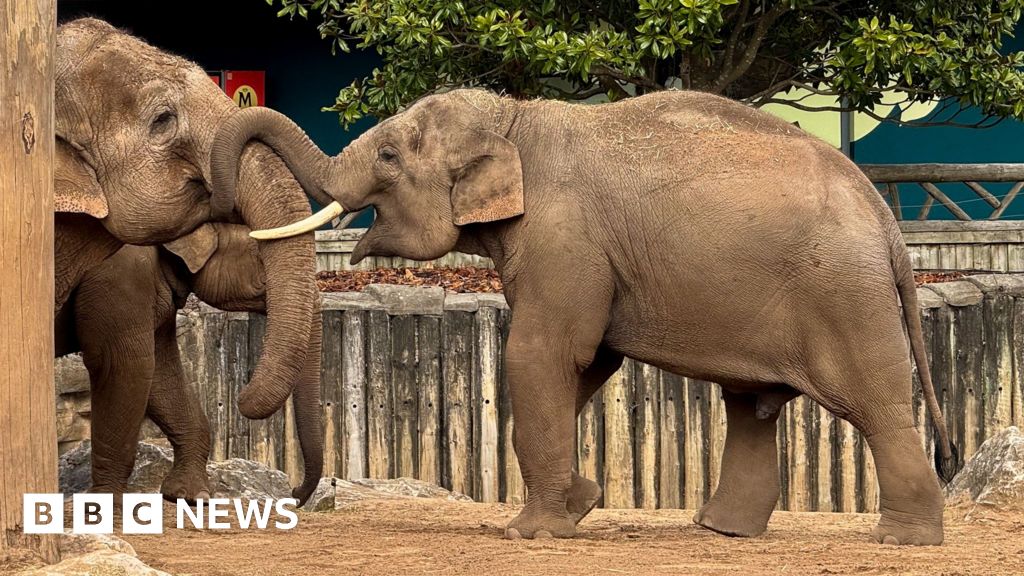Victoria GillScience correspondent, BBC News
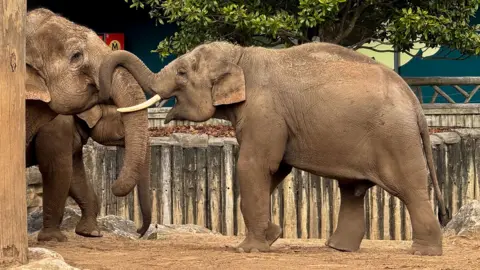 Victoria Gill/BBC
Victoria Gill/BBCResearchers have made a breakthrough in the development of new vaccine to prevent a deadly virus that affects young elephants.
The vaccine, produced by an international research team, aims to prevent the severe disease caused by elephant endotheliotropic herpesvirus (EEHV), which is currently a leading cause of death in young Asian elephants.
In trials that involved adult elephants at Chester Zoo, the vaccine was found to be safe and, crucially, to activate part of the immune system that helps fight viruses.
Prof Falko Steinbach from the UK Animal and Plant Health Agency (APHA) and the University of Surrey, said this was “a landmark moment in our work to protect Asian elephants”.
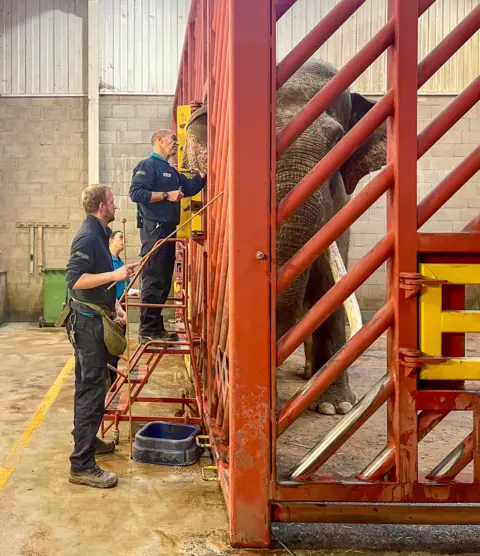 Victoria Gill/BBC
Victoria Gill/BBC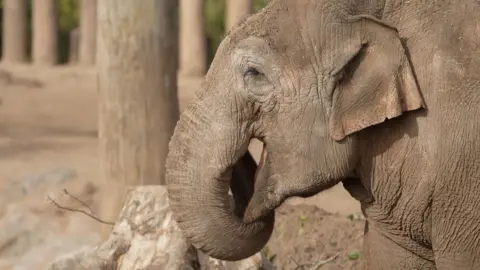 Kevin Church/BBC
Kevin Church/BBCIt is hoped that the result of this first-of-its-kind trial will pave the way to preventing the deaths of young elephants from the dangerous disease caused by this virus.
EEHV has had a particularly devastating impact in zoos. At Chester Zoo alone, seven baby elephants have died of it over the last decade. It has also been found in wild elephant herds and in some sanctuaries and elephant orphanages.
It causes a haemorrhagic disease – uncontrolled bleeding that can be fatal within 24 hours. It results in death in more than 80% of cases in juvenile elephants.
Why EEHV can be so dangerous is still unknown. Many adult elephants carry the virus – apparently with no negative impact on their health. But it is thought that young calves are particularly vulnerable when they are being weaned, and when the immune-boosting antibodies from the mother’s milk decline.
At this stage, a calf’s immune system is in a delicate balance and it can become overwhelmed. “It can cause really severe disease,” Dr Katie Edwards, lead conservation scientist at Chester Zoo told BBC News.
“It does affect wild elephants, but we don’t have an exact number of how many deaths in total it has caused. For elephants in human care [in zoos and sanctuaries] though, there have been more than 100 deaths.”
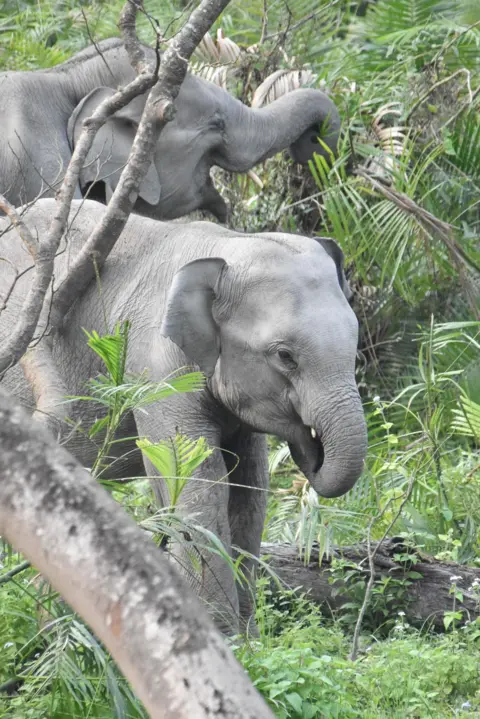 Falko Steinbach/APHA
Falko Steinbach/APHAThe research team, led by veterinary scientists at the University of Surrey and the APHA, developed the new vaccine using a tried and tested “scaffold”. Essentially, the basic structure of this vaccine is identical to one routinely used to immunise elephants against a virus called cowpox.
The scientists seeded this vaccine structure with proteins from EEHV – non-infectious bits of the virus that the elephant’s immune system might recognise and respond to.
In a world-first trial, the team tested the new vaccine in three healthy, adult elephants at Chester Zoo, then analysed blood samples from the innoculated animals.
Prof Steinbach told BBC News that the results, published in the journal Nature Communications were “better than we had hoped for”.
“They showed, unequivocally that the vaccine was able to stimulate the production of [immune cells called] T cells, that are crucial to fighting viral infections.”
The next step for the scientists is to test the vaccine in younger elephants, which are the animals most vulnerable to severe disease.
The current vaccination requires four injections to be given, so another aim is to work out if the same protective dose can be given in a simpler way – perhaps with fewer jabs.
Dr Edwards explained: “Ultimately we want to use this vaccine in the elephants that are at risk, so we want to make sure that we can get it to where it’s needed.”
Prof Steinbach added: “We think this is a significant step forward, and not necessarily only for the elephants, but because it also shows that you can design and apply vaccines to help endangered species.”
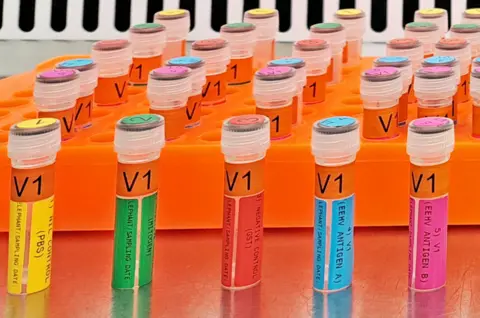 Falko Steinbach/University of Surrey
Falko Steinbach/University of Surrey